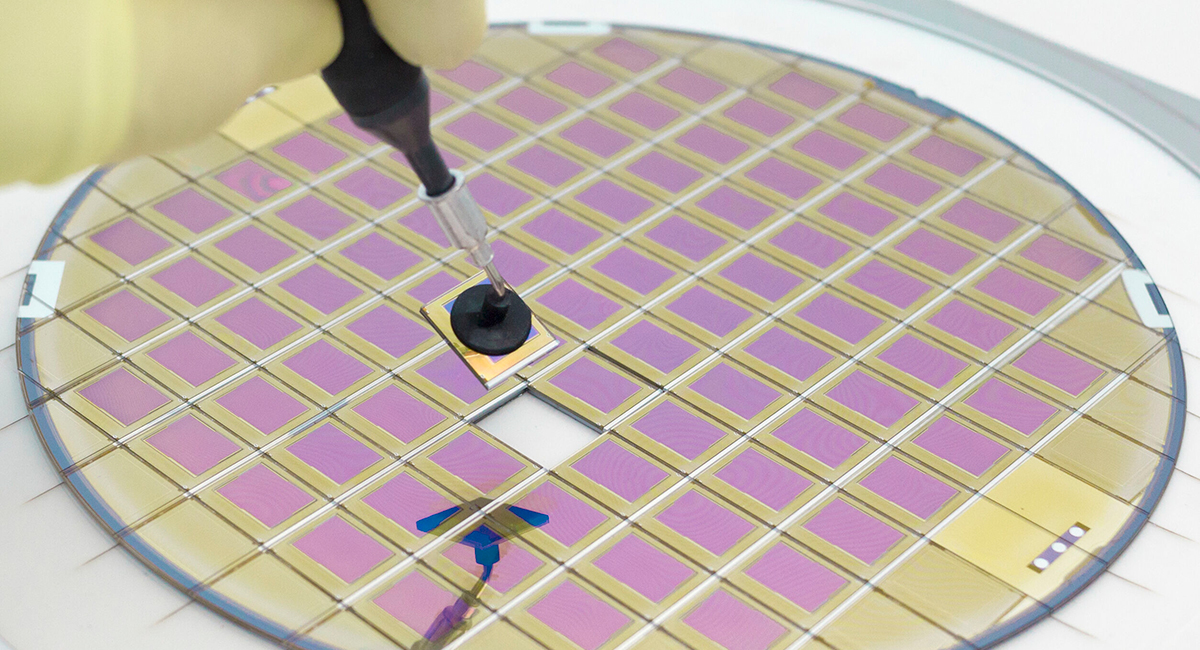The Senate has passed a $52 billion subsidy for U.S. semiconductor manufacturers. The bill gained bipartisan support because it simultaneously appeals to congressmen with protectionist views, misplaced national defense concerns and politicians “bringing home the bacon” for special interests.
In 1990, U.S. firms produced 37 percent of the world’s semiconductor chips. Today that share is down to 12 percent. But the decline in and of itself should not cause concern. Industries expand and contract all the time in a global economy. The range and quantity of goods with chips in them have expanded massively since 1990 while prices have fallen. These gains would not have been possible without increased foreign production.
Pandemic-related shocks have disrupted supply chains in many industries, including semiconductors. This may lead U.S. firms to source more from domestic chip producers in the future, but it doesn’t require a government subsidy. The impact that supply-chain disruptions cause to firms’ bottom lines already incentivizes buying from domestic producers when the risks justify it.
This doesn’t mean that competition in the global marketplace is “fair” to U.S. semiconductor producers. It’s not. China, Japan, South Korea, Germany and India all subsidize their semiconductor producers in ways similar to the subsidies passed by the Senate. But the point of competition in the marketplace is to better serve consumers—not to be fair to producers.
When other countries subsidize chip production they lure business from U.S. firms, but we Americans become wealthier because we can import chips more cheaply thanks to foreign taxpayers. That decreases U.S. semiconductor production, but it frees up U.S. labor and capital to produce other goods. So overall, we are wealthier: We get cheaper chips plus the other goods.
Special interests looking for handouts always argue that the standard case for free international trade, which I’ve articulated above, does not apply to their industry. Economists have long recognized that in particular situations, some domestic industries should be protected or subsidized because of national defense concerns. However, this so-called national defense exception is widely and disingenuously misapplied by politicians and interest groups to justify protectionist policies. This semiconductor subsidy bill is no exception.
Last week Commerce Secretary Gina Raimondo claimed that a robust semiconductor bill was “core to national security,” and Deputy Defense Secretary Kathleen Hicks argued that the bill was important because “pretty much every major system that the Defense Department uses” depends on semiconductors. Although semiconductors may be crucial for defense systems, that does not justify subsidizing U.S. producers.
National defense exceptions to the standard case for free trade are sometimes justified for small landlocked countries or those whose sea routes to their trading partners might easily be cut off. But the United States has the world’s largest navy, Atlantic and Pacific coastlines and trade with semiconductor producers to our east and west. There is little chance of a global conflict cutting off all international semiconductor suppliers.
The best defense case for a subsidy might be that a single firm in Taiwan, TSMC, makes 90 percent of the advanced 5nm chips used in military applications and U.S. firms make none. Our supply could be at risk if China invaded Taiwan.
Perhaps a national security case could be made for subsidizing the production of 5nm chips, but that does not justify the untargeted $52 billion proposed subsidy. A better path would be for the Defense Department to announce a willingness to pay progressively higher above-market prices for 5nm chips from producers outside of Taiwan, who face little risk of a Chinese invasion. This way the most cost-efficient firm, whether inside the United States or not, would be the first to satisfy demand rather than politically favored pork-barrel producers.
The $52 billion subsidy bill is just a pig dressed up in high-tech clothes. There is nothing special about the semiconductor industry that justifies subsidies. This is just wasteful pork-barrel politics as usual. Unfortunately, wasteful pork-barrel spending is the one thing that seems capable of getting bipartisan support in Washington these days.












